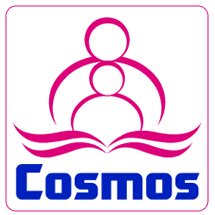Challenges in Developing High-Order Thinking Skills (HOTS): A Study of EFL Students' Thesis Statement in Writing Essay
DOI:
https://doi.org/10.61672/eji.v8i1.2686Keywords:
challanges, HOTS, thesis statements, essayAbstract
This study investigates the challenges encountered by English as a Foreign Language (EFL) students in developing High-Order Thinking Skills (HOTS), with a specific focus on the formulation of thesis statements in essay writing. As proficient essay writing necessitates the application of critical thinking skills, we examine the hurdles faced by EFL students during this cognitive process. Through a comprehensive analysis, this research sheds light on the specific difficulties and explores potential avenues for enhancing HOTS development in the context of thesis statement construction. The findings contribute valuable insights to pedagogical strategies aimed at fostering advanced cognitive skills among EFL learners. Thus, this study tried to analyze students’ thesis statement . The results of analysis revealed that students’ thesis statements could be categorized into good thesis statements. Based on the 14 students’ thesis statement in their essay the students’ score got 70.71, with categories as good. And the results also show that the average level of the students’ analyzing (C4) tends to be higher compared than the evaluating (C5) and creating (C6) levels, namely 85.71 (C4), 78.57 (C5), and 55.35 (C6).
References
Anisa, I. (2019). English Academic Writing for The Students of Widya Dharma University of Klaten. International Journal of Active Learning, IJAL 4 (2) (2019), http://journal.unnes.ac.id/nju/index.php/ijal
Amri, S. (2022). Exploring Efl Higher Education Learners’ Attitudes Toward Writing Skills Process. PANYONARA: Journal of English Education, Vol. 4, No. 1, DOI: 10.19105/panyonara.v4i1.5878
Dwigustini, R et al. (2021). Fostering Students’ Writing Skills By The Integration Of Mall Application. JOLLT Journal of Languages and Language Teaching, January 2021. Vol. 9, No, 1, pp. 34-43, : https://doi.org/10.33394/jollt.v%vi%i.3264
Klimova, B. F. (2013). Developing thinking skills in the Course of Academic Writing. Procedia - Social and Behavioral Sciences 93 ( 2013 ) 508 – 511,
Nenotek, S. A et al. (2017). Exploring University Students’ Difficulties in Writing English Academic Essay. Al-Ishlah: Jurnal Pendidikan, Vol.14, 1 (April, 2022), pp. 909-920, DOI: 10.35445/alishlah.v14i1.1352
Nachiappan, S et al. (2018). Application Of Higher Order Thinking Skills (Hots) In Teaching And Learning Through Communication Component And Spiritual, Attitudes And Values Component In Preschool. International Journal of Early Childhood Education Care Vol.7, 2018, : https://www.researchgate.net/publication/329933589
Pratiwi, D. J et al. (2022). The Correlation Between Writing Motivation and Writing Achievement. E3L: Journal of English Teaching, Linguistic, and Literature 5 (2), 2022, page 58 – 63,
Pasani, C.F and Suryaningsih, Y. (2021). Analysis of students’ Higher Order Thinking Skills (HOTS) ability in matrix subjects. Journal of Physics: Conference Series, 1760 (2021) 012039, doi:10.1088/1742-6596/1760/1/012039
Syafryadin. (2023). Higher Order Thinking Skill (Hots): Efl Students’ Levels And Challenges In Writing Discussion Sections Of Theses. Vol.11, No.4 pp. 868-878, DOI: https://doi.org/10.33394/jollt.v%vi%i.8699
Sitorus, M.M. ( 2021). The Effect Of Higher-Order Thinking Skill (Hots) In Reading Comprehension. Journal of Language Teaching and Learning, Linguistics and Literature, Volume 9, Number 1, pp. 455 – 463
Truong, K.D and Tran, B.C.N. (2022). Higher Order Thinking Skills in Teaching Academic Writing: Suggestions for Application. Theodore Maria School of Arts, Assumption University, 16.1 January 2022.
Wijaya, M.S. (2017). Students’ Thesis Statement in Essay Writing Class. English Education: Jurnal Tadris Bahasa Inggris, Vol 10 (2), 2017, 274-290, https://ejournal.radenintan.ac.id/index.php/ENGEDU
Downloads
Published
Issue
Section
License
Copyright (c) 2024 Salmiati Salmiati, Samsul Amri, Syafrizal Syafrizal

This work is licensed under a Creative Commons Attribution 4.0 International License.




















